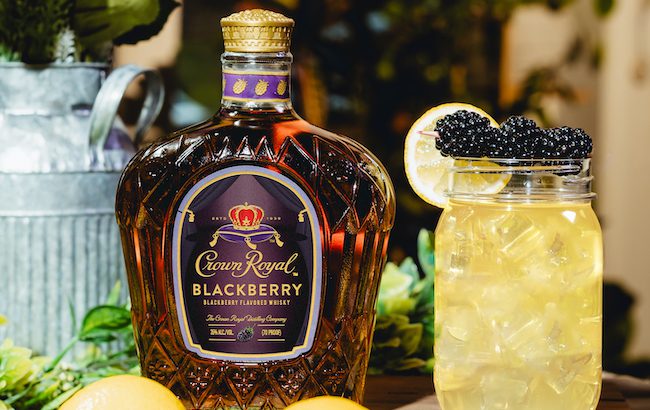Ontario’s ‘punitive’ tax bill could push spirits brands out
Spirits suppliers in Ontario are considering higher prices and a withdrawal of brands from the market after being ‘blindsided’ by a multi-million-dollar retroactive tax bill.

Trade body Spirits Canada claimed the Liquor Control Board of Ontario (LCBO) is ‘clawing back payments’ on products that were sold last year, based on claims that Quebec’s liquor board, Société des Alcools du Québec (SAQ), received similar products for a lower price.
The LCBO is retroactively applying Section 14, which demands the lowest price in the country from suppliers, when its own legislation invokes price increases every year, Spirits Canada said.
Spirits Canada represents spirits companies such as Bacardi, Diageo, Brown-Forman, Campari, Corby Spirit & Wine and Rémy Cointreau, which make up almost 70% of all spirits sold in Ontario.
The spirits producers are ‘sounding the alarm after months of disappointing conversations with the LCBO’, Spirits Canada said.
Liquor boards largely set their own pricing in their provinces, with Quebec applying a system for the lowest retail price.
Ontario, however, sets a mandatory minimum retail price for consumers that increases annually, Spirits Canada explained.
The trade body believes the LCBO is applying a ‘punitive lowest wholesale price requirement’ that ‘unfairly squeezes suppliers’.
Spirits Canada said: “We believe the LCBO is taking advantage of its own purchasing rules and inflating its revenues with no savings for consumers.”
While spirits suppliers set their own prices, the trade body noted that 75% of the price of every bottle sold in Ontario is composed of taxes and a ‘generous mark-up’ from the LCBO.
Under the ‘Minimum Pricing of Liquor and Other Pricing Matters’ regulation, the ‘social responsibility pricing model’, the minimum price of alcohol in Ontario increases every year by law. In 2023, this rose by 5% – said to widen the gap between Ontario and other provinces.
Today Ontario consumers are being charged CA$31.15 for the lowest-priced 750ml bottle of vodka, while Quebec drinkers only pay CA$22.25.
The trade body believes that the move to recover payments is to ‘bolster provincial revenues to cover government deficits’.
The LCBO takes home CA$0.59 for every CA$1 in spirits sales, Spirits Canada said.
Spirits Canada said: “Punishing suppliers for circumstances beyond their control is unfair, provides no benefits to consumers, and puts suppliers in an impossible situation. Unable to absorb these exorbitant retroactive fees, each supplier must now consider its commitment to the Ontario marketplace, including potential changes to its investments and product offerings, and consumers may no longer get the benefit of discounts or promotions on their favourite brands.”
Spirits firms consider ‘all possible options for action’
Lorena Patterson, senior vice-president of public affairs and policy at Spirits Canada, said the move by the LCBO “could drive some of consumers’ favourite brands out of the market”.
As a result of the tax bill, Patterson said the spirits companies are “compelled to examine all possible options for action”.
“In 2024, it only makes sense for Ontario consumers to have as many choices as other provinces when buying beverage alcohol, and for distillers of all sizes to be able to sell these products under more transparent and growth-oriented business practices,” she added.
“As the sole buyer and seller of all beverage alcohol for Ontario consumers, the LCBO’s conflicting policies are overcharging both suppliers and consumers again and again.”
Furthermore, Spirits Canada said the LCBO had offered no plan for settling the ‘inconsistencies’ between its low-cost model and the current social responsibility pricing strategy.
It also alleged that the LCBO is ‘abusing its market dominance to force individual suppliers to raise prices in other provinces to match the floor price the LCBO sets’, which, in turn, also penalises consumers across Canada.
LCBO response
The LCBO released a statement in response to the claims, calling them ‘inaccurate and highly misleading to consumers’.
It believes that consumers are being ‘overcharged by some suppliers’ and face an ‘unfair advantage’, noting that Ontarians pay up to CA$40 more on certain products compared with other provinces.
The LCBO claims its contract with suppliers aims to provide the lowest or most competitive prices for locals. It alleged that 10% of its suppliers are not complying with the LCBO’s rules, with more than 80% acknowledging that they have breached their contracts and are working on payment terms and conditions.
The control board said the ‘retroactive tax bill’ is not a penalty but it is instead ‘pricing chargebacks in accordance with terms of our contracts that have long been in place’.
It also noted that its mark-up structure was ‘transparent’ and publicly available.
An increase in alcohol excise duty in Canada was capped at 2% for two years in March 2024.
Related news
Mark Anthony Group faces fine for 'unfair promotion'
